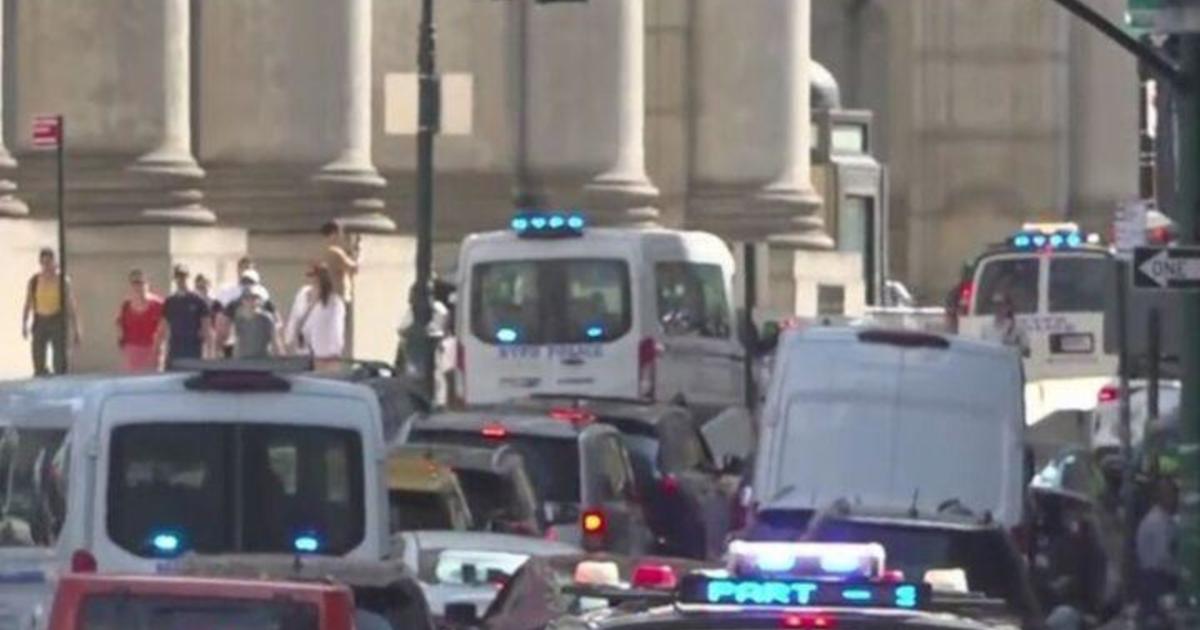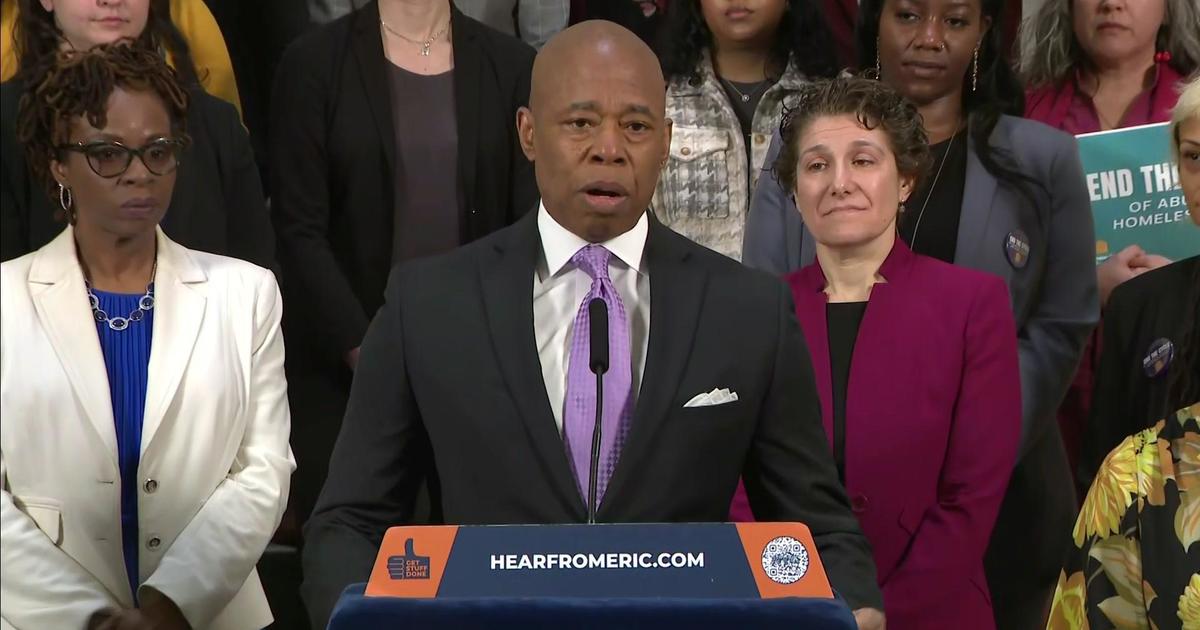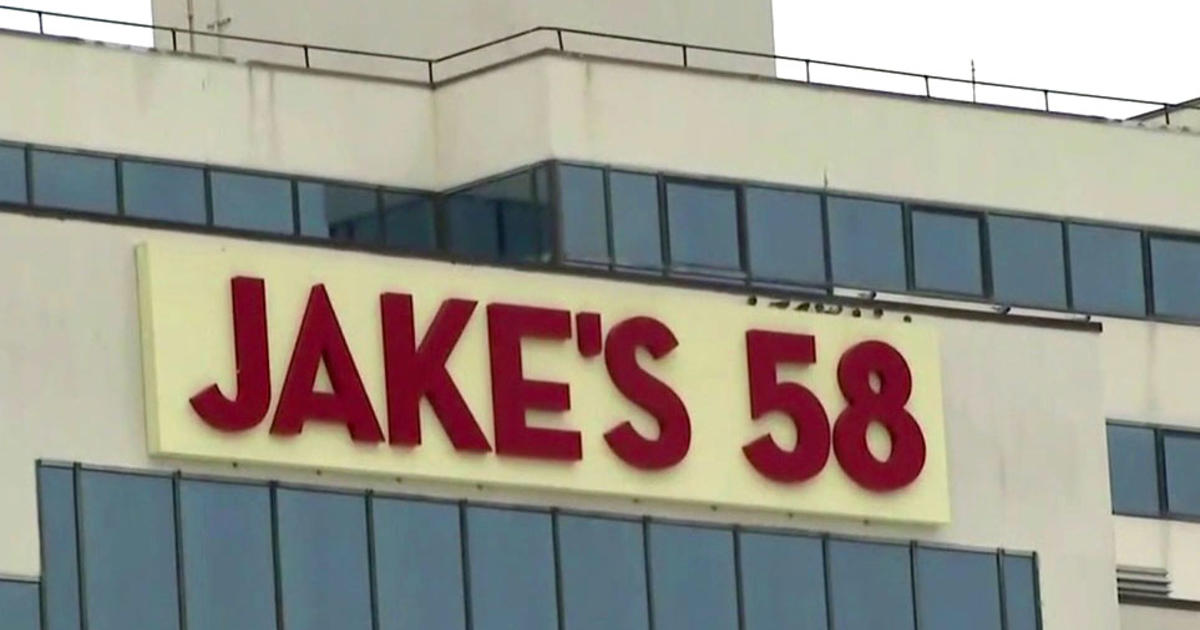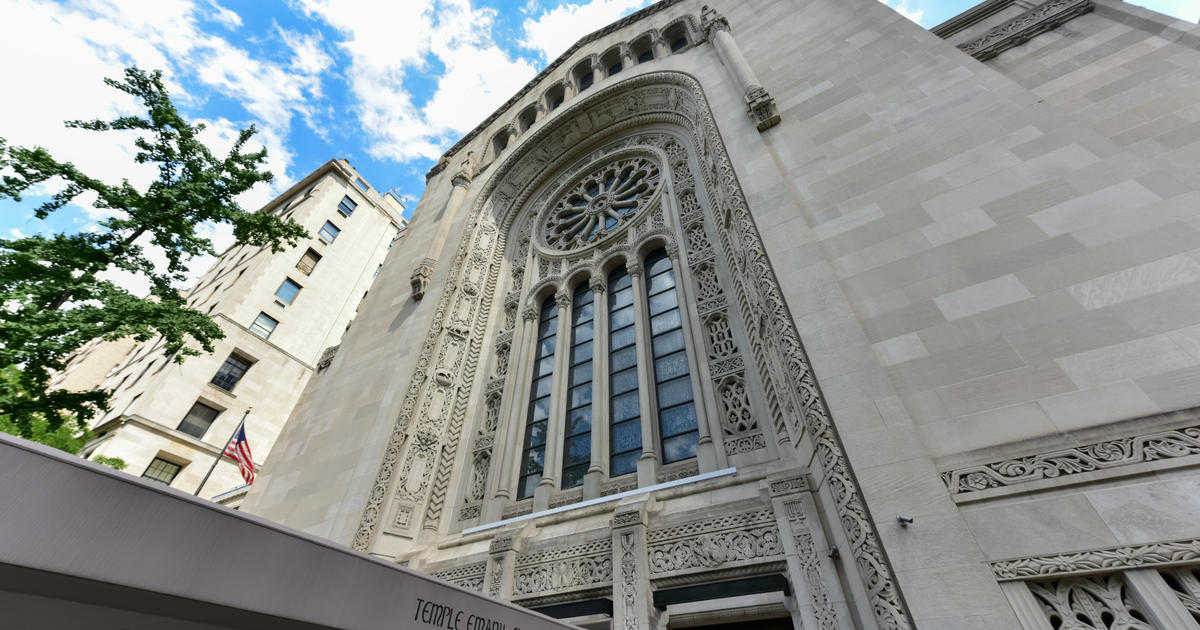Trial For John Haggerty, Accused Of Stealing From Bloomberg Campaign, Highlights Ballot Security
NEW YORK (CBSNewYork/AP) -- A political buzzword has become a touchy subject at the trial of a campaign operative charged with bilking Mayor Michael Bloomberg out of more than $1 million.
To hear consultant John Haggerty's defense lawyers tell it, the term -- ballot security -- is such a political bete noir that Bloomberg's campaign maneuvered to pay for it on the sly. But the mayor's camp calls it a perfectly upstanding poll-monitoring practice that, as a Bloomberg insider told jurors this week, others portray as "something that it's not."
Democrats and some voting-rights advocates have long criticized ballot security as a racially charged fig leaf for challenging and intimidating an opponent's supporters at the polls. Republicans say it's simply monitoring to forestall election fraud.
From any vantage point, the high-profile trial is spotlighting the fine points of poll monitoring and longstanding friction between Republicans and Democrats over the line between observing and interfering with elections.
After all, for all the attention to elections, "the actual act of poll-watching itself is not usually the focus," said Eric Marshall of the Lawyers' Committee for Civil Rights Under Law, a Washington-based group that enlists volunteer lawyers as poll-watchers.
Officially, the charges against Haggerty have little to do with the decades-old debate over ballot security. The veteran Republican operative is accused of inducing the mayor's campaign aides to finance a robust 2009 ballot security operation -- complete with an office, Election Day drivers and 1,355 paid poll monitors -- then doing next to none of that and using most of the money instead to buy himself a house. Haggerty, 42, says he did what was expected of him, and Bloomberg and the party got what they wanted.
His lawyers are hammering at the billionaire mayor's self-financed $109 million bid for a third term, painting it as a free-spending, win-at-all-costs drive that skirted campaign-finance laws and engaged in shady dealings -- particularly by arranging to pay for the ballot security initiative not as a campaign expense but through a personal donation from the Democrat-turned-Republican-turned-unaffiliated mayor to the Independence Party. The party, Haggerty noted in a proposal to Bloomberg aides, wouldn't have to report the contribution until months after the election.
One defense lawyer, Raymond Costello, told jurors this week that the Bloomberg campaign was wary of ballot security's "negative connotation" after facing Democratic criticism in the mayor's 2005 re-election run. Another Haggerty attorney, Republican former state Attorney General Dennis Vacco, put it more bluntly in questioning one of Bloomberg's former top aides and campaign leaders, Kevin Sheekey: "Your ultimate goal was to get ballot security without having the campaign's fingerprints on it, isn't that so?"
Sheekey noted the party duly reported the contribution and said the poll-monitoring program was meant to benefit the party's whole slate, not just Bloomberg, its most prominent candidate. Equating ballot security with suppressing votes is "hogwash," he said.
"It's not uncommon for candidates, more often Democratic candidates than Republicans in New York, to allege that ballot security is something that it's not," he said.
What it was, according to Haggerty's proposal, was fielding poll watchers and lawyers to keep an eye out for polling-place problems and voting-law violations, assess turnout and prevent voter fraud. Under New York state election law, parties and candidates can have poll watchers read or listen to the names of voters checking in, and the watchers can challenge those they believe aren't eligible.
"This operation ... has had the effect of reducing poll site issues and unlawful voting just through its presence alone" in prior elections, Haggerty wrote.
To Democrats and some voting-rights groups, "ballot security" has a problematic history.
They acknowledge there's a place for poll monitoring. Indeed, Democrats field their own poll watchers and lawyers. But they say the point should be to look out for voting-machine glitches or other problems, to make sure no one is being improperly barred from voting and to keep tabs on supporters' turnout so campaigns can target get-out-the-vote calls -- not to deploy inherently partisan people to police alleged voter fraud.
"There's certainly nothing wrong with watching and monitoring an election," says Wendy Weiser, executive director of the New York University School of Law's Brennan Center for Justice, which has written papers on the issue. But ballot security "sounds like they're trying to guard against unlawful access to the ballot. And that's something that political operatives are ill-suited to," she said.
Intentionally or not, such efforts often end up challenging voters who are actually eligible, intimidating them and frustrating others by disrupting the polling process, critics say.
The Democratic National Committee sued its Republican counterpart in 1981 over GOP ballot security efforts in New Jersey, claiming Republicans tried to intimidate minority voters by posting armed poll watchers, wearing armbands saying "National Ballot Security Task Force," at heavily minority precincts.
To settle the federal case, the RNC agreed in a consent decree the next year not to conduct any ballot security programs that "deter qualified voters from voting" and were targeted according to precincts' racial or ethnic composition. Republicans later agreed to submit any future ballot security plans to the court for approval, with an exception for "normal poll watch functions."
After Democrats repeatedly took the GOP back to court, Republicans tried in 2009 to get the consent decree lifted, saying they needed more freedom to conduct ballot security initiatives because looser voter-registration laws, the growing use of absentee ballots and other election-law changes had raised the risk of bogus balloting.
"The public has a strong interest in detecting and preventing voter fraud," Republican lawyers wrote.
Democrats said Republicans were overblowing the prospect of fraud. A judge made some changes and clarifications but refused to nix the decree, saying "the risks created by poorly-designed ballot security initiatives ... are a greater threat to the electoral process than the in-person fraud they are meant to prevent."
Democrats in New York asked Bloomberg in 2005 to call off a $1 million Republican ballot security operation he underwrote and Haggerty led that year. The state Democratic party said it "was widely viewed as an effort to intimidate or suppress" minority votes for Democratic challenger and former Bronx Borough President Fernando Ferrer, according to a 2005 newspaper report. A Bloomberg campaign adviser then called the remarks insulting.
The state Republican Party didn't immediately respond to requests this week to discuss ballot security. A Bloomberg spokesman declined to detail the ballot security operations Bloomberg paid for in 2001 and 2005.
Some local Democrats marvel at the idea of a million-dollar poll-monitoring program, a function they say they carry out mostly with volunteers. Bloomberg's camp says he wanted to equip Republicans and later the Independence Party, the state's third-largest, to match the dominant Democrats' manpower.
Bloomberg's Democratic opponent in 2009, former city Comptroller William Thompson, relied on volunteers to field a "voter protection" program intended to make sure voters didn't encounter undue hurdles, Thompson campaign lawyer Jerry H. Goldfeder recalled.
"It was based on our resources" and spending caps imposed on candidates who accept public matching money, said Goldfeder, of Stroock & Stroock & Lavan LLP. "But (Bloomberg) was a self-funded candidate, so he didn't have that issue."
Haggerty's trial continues Monday.
Sound off in our comments section below…
(TM and Copyright 2011 CBS Radio Inc. and its relevant subsidiaries. CBS RADIO and EYE Logo TM and Copyright 2011 CBS Broadcasting Inc. Used under license. All Rights Reserved. This material may not be published, broadcast, rewritten, or redistributed. The Associated Press contributed to this report.)



